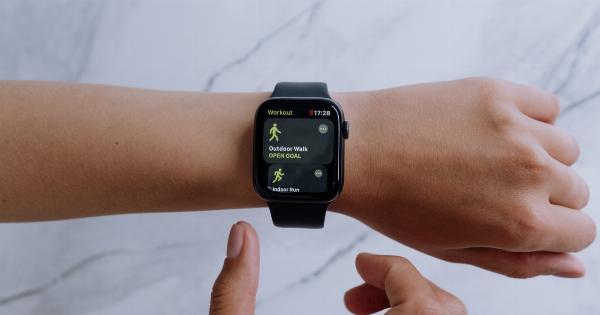In recent years, there has been a growing interest in leveraging advances in technology and data analytics to predict and prevent health issues before they arise.
This emerging field, known as predictive health, aims to revolutionize healthcare by shifting the focus from reactive to proactive interventions.
By analyzing vast amounts of health data, including genetic information, personal health records, and lifestyle data, predictive health holds the promise of improving outcomes, reducing healthcare costs, and ultimately, enabling individuals to take control of their own health.
The Power of Data Analytics in Predictive Health
Predictive health heavily relies on utilizing data analytics techniques to make accurate predictions about an individual’s health.
With the advent of electronic health records and wearable devices, healthcare providers and researchers can collect and analyze an unprecedented amount of health data. This includes vital signs, symptoms, medical history, lifestyle factors, and even social determinants of health.
By applying advanced analytics algorithms, such as machine learning and artificial intelligence, patterns and relationships can be discovered within this data.
These insights allow healthcare practitioners to identify individuals who are at a higher risk of developing certain health conditions, such as diabetes, cardiovascular diseases, or even mental health disorders.
Prevention: The Key to a Healthier Future
One of the primary goals of predictive health is to enable preventive interventions rather than waiting for the onset of symptoms or disease.
By identifying individuals at risk, healthcare providers can take proactive measures to prevent or slow down the progression of a condition.
For instance, if a predictive health model determines that someone has a high risk of developing diabetes due to their genetic profile and lifestyle choices, healthcare providers can recommend personalized strategies to mitigate those risks.
This might involve dietary modifications, exercise plans, or even targeted medication to prevent the onset of the disease.
Furthermore, predictive health can also support population health management by identifying trends and risk factors at a larger scale.
By understanding the common factors contributing to a specific health issue, policymakers can design interventions and public health campaigns that target the root causes of these problems.
Ethical Considerations in Predictive Health
While predictive health holds tremendous potential, it also raises significant ethical considerations. The use of personal health data for predictive purposes raises concerns around privacy, consent, and potential discrimination.
Privacy is a paramount concern when dealing with sensitive health information. Ensuring that robust security measures are in place to protect individuals’ health data from unauthorized access or misuse is essential.
Additionally, obtaining informed consent and ensuring transparency in how data is collected, used, and shared is crucial to maintaining trust and fostering ethical data practices in predictive health.
Another concern is the potential for discrimination based on predictive health outcomes.
If an individual is identified as being at a higher risk for a certain condition, there is a risk that they may face discrimination from employers, insurance companies, or even social stigmatization. Striking a balance between utilizing predictive health for preventive purposes while protecting individuals from discrimination and bias is a complex challenge that requires careful consideration.
The Road Ahead for Predictive Health
Predictive health is still in its early stages, and there are numerous challenges that need to be addressed to fully realize its potential.
Some of these challenges include data interoperability, standardization, and the development of robust and reliable predictive models.
Data interoperability refers to the ability of different healthcare systems and devices to seamlessly exchange and utilize data.
Without interoperability, the full potential of predictive health cannot be achieved, as data silos hinder the comprehensive analysis and utilization of health information.
Standardization of data formats and coding systems is equally important.
Having consistent and standardized data allows for easier aggregation and analysis, enabling researchers and healthcare providers to identify patterns and trends across different datasets.
Developing reliable predictive models is another major challenge.
While machine learning and artificial intelligence have shown promise in predicting health outcomes, there is a need for robust validation and testing to ensure the accuracy and reliability of these models. Inaccurate predictions could have severe consequences for individuals’ health and well-being.
The Promise and Limitations of Predictive Health
Predictive health has the potential to revolutionize healthcare by shifting from a reactive to a proactive paradigm.
By leveraging data analytics and advanced technologies, healthcare providers can identify individuals at risk and intervene before the onset of symptoms or disease. This not only improves individual outcomes but also has the potential to reduce healthcare costs by focusing on prevention rather than expensive treatments.
However, predictive health also has limitations that need to be acknowledged. Health is a complex interplay of various genetic, environmental, and lifestyle factors.
While predictive models can provide valuable insights, they are not definitive predictors of future health outcomes. Additionally, the ethical considerations discussed earlier highlight the need for careful implementation and oversight of predictive health initiatives.
The Future of Healthcare is Predictive
Predictive health represents a powerful vision for the future of healthcare.
By leveraging the wealth of health data and applying advanced analytics techniques, healthcare providers and researchers can not only predict and prevent diseases but also empower individuals to take an active role in managing their own health.
However, it is crucial to approach predictive health with a balance of optimism and caution.
Ethical considerations, data privacy, and technological challenges must be addressed to ensure that predictive health delivers on its promise without compromising individual rights and well-being.





























